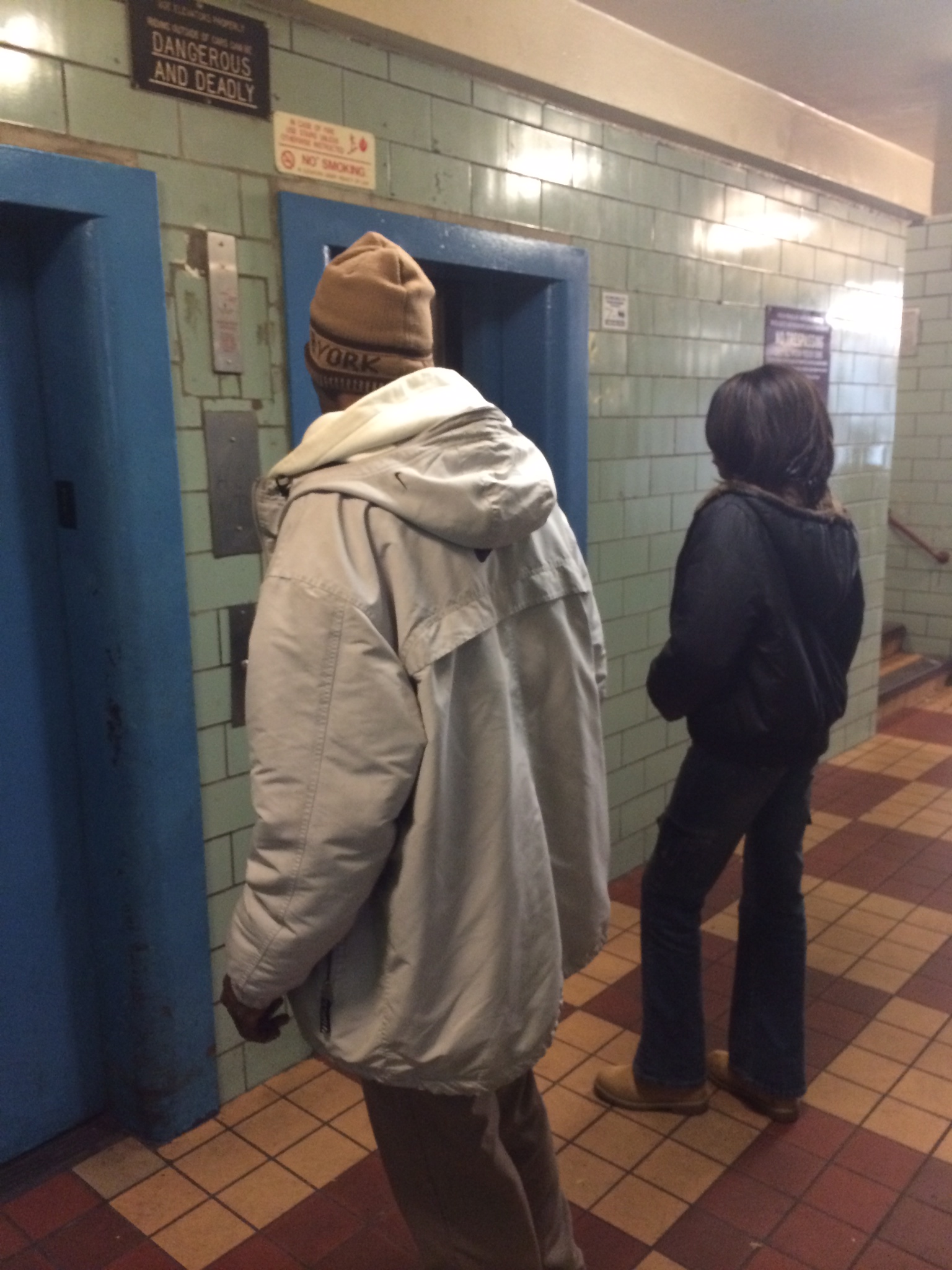Some NYCHA resident leaders in the South Bronx say they were stunned by the bombshell news last week that workers in their buildings were among the 70 employees charged in a citywide pay-to-play bribery scheme.
But others said the revelations were just confirmation of a culture of corruption they have become resigned to over long years of waiting in vain for federal funding for basic repairs.
Six of the 70 NYCHA employees worked at five Mott Haven-area developments, as superintendents and assistant supers. Like their counterparts in developments across the city, they are accused of demanding bribes from contractors in return for no-bid contracts for repair work.
According to court documents from the US Southern District of New York, the 70 workers pulled in $2 million in cash in exchange for $13 million in contracts they handed out to contractors at about 100 NYCHA developments. Sixty-six of the 70 were arraigned on Tuesday, according to the SDNY and are expected back in court in March.
Named in the indictment are Carmen Rivera, who served as assistant superintendent at Mitchel Houses; Frankie Villanueva, assistant superintendent at Mitchel Houses and superintendent at Mott Haven Houses, as well as two Bronx developments outside the area; Manuel Garcia, superintendent at Mott Haven and Mitchel Houses; Garth Small, assistant superintendent at Mitchel and Mill Brook; Charles Starks, superintendent at Mill Brook; and Jose Hernandez, superintendent at Moore and St. Mary’s Park Houses.
“I pray it’s not true,” said Princella Jamerson, resident leader at Mill Brook Houses. “It’s not good for the residents.”
In an emailed statement, NYCHA’s Citywide Council of Presidents said it “expresses profound concern and dismay over the emerging allegations.” Daniel Barber from Jackson Houses in Melrose chairs the group, which is made up of tenant leaders from public housing. “If proven true, these allegations represent yet another instance of deception and misappropriation affecting the employees and staff of NYCHA,” a reference to similar but much smaller scale pay-to-pay schemes that have led to arrests in recent years.
In a statement, a NYCHA spokesman said “NYCHA has zero tolerance for wrongful or illegal activity and will continue to work collaboratively with our law enforcement and oversight partners to rid the Authority of malfeasance. We remain steadfast in our commitment to making NYCHA stronger and improving the quality of life for public housing residents.”
Other resident leaders said the signs of mismanagement are everywhere in their developments. Dana Gelden, resident leader at St. Mary’s Park Houses, said the scandal strikes yet another blow to tenants’ confidence in NYCHA’s ability to manage its properties and respond to the ever-expanding list of urgently needed repairs.
“The trust factor is something resident leaders have been talking about for many years,” said Gelden, but added she was not surprised. Shoddy work is standard at St. Mary’s Park Houses and Moore Houses, she said, pointing out one example among many — the magnetic door jambs at St. Mary’s are broken, leaving the buildings easily accessible. Yet the vendor has not yet come to fix them.
“It’s all about the money, not about the comfort of the residents,” she said. “You can see the (lack of) integrity of some of the work.”
Ramona Ferreyra, a Mitchel Houses resident who leads a NYCHA advocacy group called Save Section 9, said scaffolding that was recently removed from the back of her building after six years had not been used for any kind of building work since before the pandemic. Rats and raccoons commonly scaled it, and workers occasionally came to sweep trash off the platforms.
“We always knew this was the norm,” said Ferreyra.
Tenant leaders worry the scheme foreshadows the potential for even wider corruption if NYCHA privatizes apartments under the new preservation trust, which the state legislature approved in 2022. Under that entity, funding for 25,000 of the city’s 178,000 NYCHA apartments will be shifted to federal Section 8 housing vouchers, allowing for more money to be borrowed for repairs through bond offerings, although NYCHA would remain the property manager for those apartments.
A day after the arrests were announced, Save Section 9 tenant leaders discussed those implications in a zoom meeting.
“With an entity that has a culture of corruption, we can anticipate that this preservation trust will allow NYCHA to manage units and pursue contracts without accountability,” said Ferreyra.
Following a similar bribery scheme in 2021 that led to the arrest of several superintendents, the Department of Investigation recommended NYCHA stop allowing supers to award no-bid contracts without oversight, according to new reporting by The City. But NYCHA rejected that recommendation, arguing the proposed changes would slow the pace of repairs.
South Bronx resident leaders attribute the recent takedown to the federal government’s role overseeing NYCHA, and say they want to see the authority return to a policy it abandoned years ago, of including tenant leaders in repair decisions, rather than leaving the hiring of contractors to building staff alone.
“We want public housing to work the way it’s supposed to work,” with the investment of more NYCHA building staff, said Ferreyra. “We shouldn’t have to depend on contractors.”

